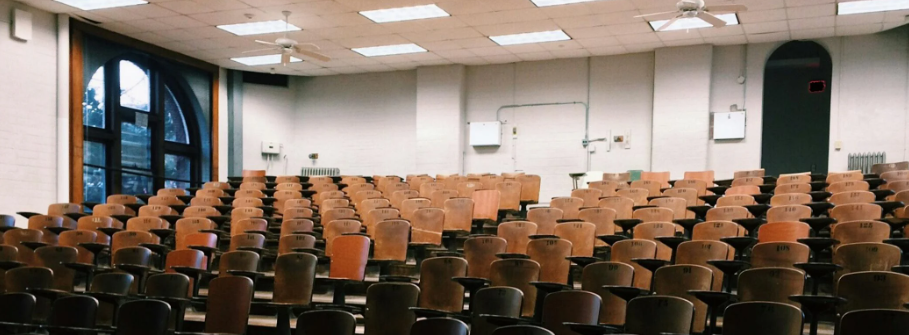College Stress-Busting Strategies
May 18, 2023
12 min read
"College Stress-Busting Strategies" helps students overcome challenges in university life. It covers coping with homesickness, managing finances, improving language skills, and more. Learn time management, reduce tech stress, try relaxation activities, ensure a safe environment, and prioritize mental well-being. Embrace personal growth while studying and managing stress in college.

- Image By Unsplash
Table of content
Discover effective strategies for managing stress and thriving in university life. From academic pressures to financial challenges and homesickness, studying abroad can bring unique stressors. However, it's important to recognize that these feelings are normal and support is available. Learn how to navigate cultural disorientation, cope with homesickness, manage finances and academic expectations, improve language skills, and master time management.
Find ways to stay connected, prioritize self-care, and create a safe and fulfilling experience. Embrace the opportunity to grow both academically and personally while successfully managing the stressors of university life.
1. Cultural Disorientation
Moving to a new place can be an incredibly exciting yet overwhelming experience, especially for students who embark on this journey. Along with the anticipation of new opportunities, they often encounter a multitude of challenges that can induce stress.
Language barriers, finding suitable accommodation, managing household chores, and adapting to the demands of studying in a foreign country can be particularly daunting.
Additionally, students may encounter difficulties in making friends, expressing themselves in group assignments, and utilizing technology due to language barriers. These hurdles can contribute to feelings of isolation and frustration, further amplifying the stress experienced during the cultural transition.
Fortunately, there are proactive steps that students can take to mitigate the potential stress of cultural shock and adapt more smoothly to their new environment, by dedicating time to watching videos, reading articles, and educating themselves about the new culture they will experience, students can gain valuable insights and develop a deeper understanding of the customs, traditions, and norms of their host country.
This proactive approach helps build familiarity and fosters a sense of preparedness, ultimately reducing stress levels and equipping students with the tools necessary to navigate the challenges that arise when moving to a new country.

2. Coping with Homesickness
When students venture to a new country, it's completely normal for them to experience a certain degree of culture shock. However, there are strategies they can employ to help ease this transition and adapt more smoothly.
One highly beneficial approach is to conduct thorough research and familiarize themselves with the new culture as much as possible before their arrival.
By delving into the customs, traditions, and social norms of the host country, students can gain valuable insights that will better prepare them for the cultural differences they will encounter.
Furthermore, homesickness is a common experience that many students face when studying abroad. It's crucial to recognize that homesickness does not reflect weakness or an inability to cope, but rather it's a natural emotional response to being away from familiar surroundings.
To overcome homesickness, students can take proactive steps such as staying connected with family and friends through regular communication, engaging in self-care activities like exercise and maintaining a healthy diet, and opening up about their feelings and emotions with others.
Seeking support from fellow students or joining international student organizations can also provide a sense of community and understanding during this challenging time.
Navigating the complexities of managing finances and academic responsibilities can be challenging, but students should remember that there are resources and assistance available to them.
Seeking guidance from financial advisors, academic counselors, or career services can offer valuable insights and support to help students navigate these aspects of their college experience more effectively.
By being proactive in preparing for cultural differences, addressing homesickness, and seeking assistance for financial and academic challenges, students can enhance their overall well-being and successfully adapt to their new environment.
Embracing the opportunities for personal growth and cultural exchange that studying abroad offers becomes more attainable, leading to a transformative and rewarding experience.
3. Improving Linguistic Abilities
Language proficiency plays a significant role in the stress experienced by students studying in a foreign country. Inadequate language skills can lead to difficulties in everyday communication and keeping up with coursework, contributing to increased stress levels. However, there are various strategies and resources available to help students improve their language skills and alleviate this source of stress.
Consistent practice is key to enhancing language proficiency. Students can begin their language learning journey even before arriving in the new country by dedicating time to practice speaking, listening, reading, and writing. Language learning apps, online courses, and language exchange programs can provide valuable resources for self-study and practice
One effective method to immerse oneself in the local language and culture is by actively engaging with native speakers. Making friends with local students or joining language exchange groups can create opportunities for meaningful interactions and language practice. Learning from native speakers not only improves language skills but also offers insights into cultural nuances, customs, and colloquial expressions.
By actively seeking opportunities for language practice, utilizing various resources, and maintaining a dedicated study routine, students can gradually improve their language skills and reduce the stress associated with language barriers.
Embracing the process of language learning not only enhances communication but also enriches the overall study-abroad experience by fostering deeper connections with the local culture and community.
Some linguistic abilities
3.1 Language Awareness:
Knowledge of the structure, history, and evolution of a language, as well as its regional variations and dialects.
3.2 Language Learning Strategies:
The ability to employ effective techniques and approaches for language acquisition, including mnemonic devices, memorization techniques, and self-assessment methods.
3.3 Multilingualism:
The ability to understand, speak, read, and write in multiple languages, facilitating communication and cultural exchange in diverse contexts.
3.4 Vocabulary:
The range of words and phrases a person knows and understands in a particular language.
3.5 Grammar:
The rules and structures governing the formation of sentences and the use of words in a language.
3.6 Pronunciation:
The ability to articulate and produce sounds, stress, and intonation patterns accurately in a language.
4. Time Management
In today's digital age, the pervasive use of technology among students can both enhance and hinder their time management skills. While technology offers convenience and connectivity, it can also become a significant source of stress and distraction, impacting students' ability to effectively manage their time and prioritize their tasks.
One of the main culprits is social media, which has been linked to increased levels of anxiety, depression, and decreased overall well-being. The constant scrolling, comparing oneself to others, and fear of missing out (FOMO) can consume a significant amount of time and mental energy.
To mitigate the stress caused by social media, students can set boundaries and establish limits on their usage. This can involve allocating specific time slots for checking social media or designating "technology-free zones" during study or relaxation periods.
To counterbalance the negative effects of technology and promote overall well-being, it is essential for students to incorporate regular breaks from technology into their daily routines.
Engaging in activities that promote relaxation and mental rejuvenation, such as meditation, mindfulness exercises, or physical exercise, can help reduce stress levels and enhance focus.
Taking breaks to step outside, connect with nature, or engage in hobbies unrelated to technology can also provide a much-needed respite and allow students to recharge before returning to their academic tasks.
Time management is a critical skill for students, and effectively managing technology usage is a key component of it. By implementing strategies to reduce the negative impact of technology, setting clear boundaries, and allocating dedicated time for focused work, students can reclaim their time, reduce stress levels, and improve their overall productivity and well-being.
It is important for students to remember that they have control over their technology usage and can make conscious choices to optimize their time management skills in the digital era.

5. Explore your Options
When stress takes hold, the instinct to isolate oneself from others can be strong. However, withdrawing from social interactions can actually worsen the situation. Rather than spending solitary moments brooding in your room, consider embracing the powerful stress-reducing benefits of exercise.
Engaging in physical activity offers a natural and effective way to alleviate stress. Whether it's going for a jog, practicing yoga, joining a sports team, or taking a dance class, exercise releases endorphins that promote a positive mood and help combat stress.
It provides an outlet for pent-up emotions, allowing you to channel your energy into something productive and beneficial for your overall well-being.
Moreover, exercise can serve as a social outlet, allowing you to connect with others who share similar interests. Joining a sports team or fitness group not only offers the opportunity for physical activity but also fosters new connections and a sense of belonging.
Engaging in group activities can provide a supportive and motivating environment, further enhancing the stress-relieving effects of exercise.
By actively choosing to explore your options and engage in physical activities, you can break free from the cycle of stress and isolation. Embracing exercise as a coping mechanism allows you to take proactive steps towards managing stress, improving your mental and physical health, and nurturing social connections that can contribute to a more balanced and fulfilling college experience.
6. Discovering a Stress Reliever
While it's impossible to completely avoid stress, there are several effective strategies to manage it and prevent it from becoming overwhelming. Discovering a stress reliever that works for you is crucial in maintaining a healthy balance.
Some common techniques include engaging in regular exercise, spending quality time with loved ones, indulging in comforting foods, treating yourself to a massage, exploring your culinary skills through cooking, or simply enjoying a favorite movie.
Studying and living abroad can be a challenging experience, as everything is new and adapting to a different culture takes time. It's natural to feel stressed and overwhelmed initially, but it's important to persevere and not let stress overpower you.
Remember, the benefits of studying abroad are vast, including personal growth, cultural immersion, and expanded horizons. Embrace the opportunity and keep pushing forward, knowing that the initial struggles will eventually subside as you adjust and find your footing in the new environment.
By actively seeking out stress-relieving activities and maintaining a positive mindset, you can navigate the challenges of studying abroad while preserving your well-being. Stay resilient, stay focused, and remember to take care of yourself along the way.

7. Insecurity in the Unfamiliar Setting
Feeling insecure in an unfamiliar setting can create significant stress for students. Initially, when searching for accommodation, everything may seem perfect. They may find a place that is conveniently located near the university and affordable, giving the impression that everything is falling into place.
However, ensuring a safe and comfortable experience is paramount. To achieve this, it is highly recommended that students seek housing options through their university.
On-campus dormitories are a popular choice as they provide a sense of security and familiarity. Living in a dorm allows students to get to know their new city while being surrounded by peers in a supportive community.
Choosing on-campus housing not only provides physical safety but also offers opportunities for social integration and making lasting connections. Being surrounded by fellow students in similar situations can foster a sense of belonging and alleviate feelings of insecurity.
By prioritizing safety and opting for on-campus accommodation, students can mitigate the stress of insecurity in an unfamiliar environment. It allows them to focus on their studies, engage in extracurricular activities, and fully embrace the enriching experiences that come with studying abroad.

| Technique | Description |
|---|---|
| Exercise | Engage in physical activity to relieve stress. |
| Meditation | Practice mindfulness and relaxation techniques. |
| Deep breathing | Take slow, deep breaths to calm the mind. |
| Time management | Plan and organize tasks to reduce overwhelm. |
| Social support | Seek support from friends, family, or counselors. |
| Sleep hygiene | Maintain a regular sleep schedule and quality. |
| Healthy diet | Eat nutritious meals to support overall well-being. |
| Hobbies and leisure activities | Engage in activities you enjoy to relax and unwind. |
| Time for self-care | Prioritize self-care activities to recharge. |
| Seeking help | Consult professionals for guidance and support. |
Studying abroad can be stressful, but proactive steps such as cultural education, staying connected, improving language skills, managing time and technology, engaging in physical activity, and seeking support can help students navigate challenges and enhance their well-being. With resilience and self-care, students can embrace personal growth and cultural exchange while managing stress.
Frequently Asked Questions
How can I manage stress while studying?
How can I manage my time effectively in college?
How can I find a stress reliever that works for me?
What can I do to improve my language skills in a new country?
How can exercise help reduce stress as a college student?
Get Daily Insights! Pave your way to academic excellence
Previous Post
Tips and Strategies for Career Development
Top Career Options for Students in 2023
Related Blogs
Navigating College Life: Insights, Tips, and Stories to Thrive on Campus and Beyond.
CollegeBharat Help
Do you need additional help?

Get Support
Log in for Personalized service and assistance.

CollegeBharat Community
CollegeBharat Community is here to help.

Get in touch with our
expert counsellors
By continuing, you are confirming your agreement to CollegeBharat's Terms & Conditions and Privacy Policy.



